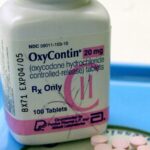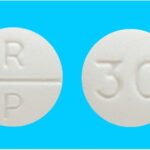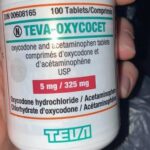Mundi Oxycontin 80: Uses, Side Effects, Addiction
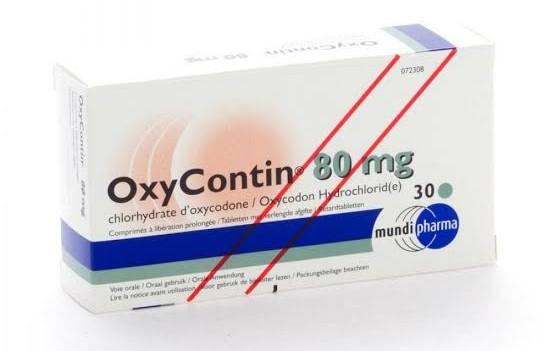
Mundi Oxycontin 80 is a brand of Oxycodone containing 80 mg of the active ingredient. It is supplied by Mundipharma Pharmaceuticals S.L. a Spanish pharmaceutical company that was founded in 2003.
Oxycodone belongs to a group of medications known as opioid analgesics (narcotic pain relievers). It is used to relieve moderate-to-severe pain. It decreases pain by working on the central nervous system. Do not give this medication to anyone else, even if they have the same symptoms as you do. It can be harmful to people to take this medication if their doctor has not prescribed it. Oxycodone products are in Schedule II of the Controlled Substances Act.
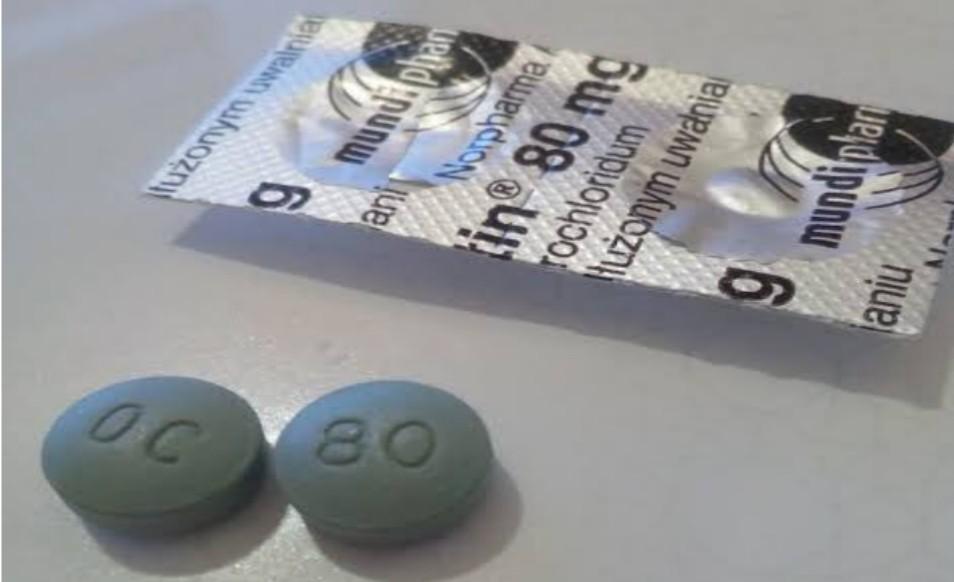
How should I use Mundi Oxycontin 80?
The dose of oxycodone varies widely depending on the cause and severity of pain, individual medical history, age, and body weight. For people who are currently taking other opioid pain medications when oxycodone is started, the recommended starting dose will depend on the type and dose of opioid that is currently being taken. Your doctor will determine the appropriate dose for you.
Mundi Oxycontin 80 should be taken with a glass of water. It can be taken with or without food. Many things can affect the dose of medication that a person needs, such as body weight, other medical conditions, and other medications. If your doctor has recommended a dose different from the ones listed here, do not change the way that you are taking the medication without consulting your doctor.
It is important that this medication be taken exactly as prescribed by your doctor.
If you miss a dose of the controlled-release tablets, take it as soon as possible and continue with your regular schedule. If it is almost time for your next dose, skip the missed dose and continue with your regular dosing schedule. Do not take a double dose to make up for a missed one. If you are not sure what to do after missing a dose, contact your doctor or pharmacist for advice.
Store this medication in its original packaging at room temperature and protect it from moisture. Keep this medication in a safe place away from children or pets, and to prevent theft. Accidental use by a child or pet may result in death, so if this occurs, get immediate medical attention for the child or pet. Do not take this medication in front of children. Return any unused medication to your pharmacy for safe disposal.
Do not dispose of medications in wastewater (e.g. down the sink or in the toilet) or in household garbage. Ask your pharmacist how to dispose of medications that are no longer needed or have expired.
Who should NOT take Mundi Oxycontin 80?
Do not take oxycodone if you:
• are allergic to oxycodone, other opioids (e.g., codeine, hydrocodone, morphine), or any ingredients of the medication
• are pregnant or breast-feeding, or during labour and delivery
• are taking or have taken (within the last 14 days) MAO inhibitors (e.g., phenelzine, tranylcypromine)
• have a head injury
• have a seizure disorder
• have acute alcoholism
• have acute asthma or other obstructive airway diseases (e.g., chronic bronchitis, emphysema)
• have cor pulmonale (heart failure caused by chronic high blood pressure in the arteries of the lungs)
• have delirium tremens (e.g., confusion, diarrhea, shaking, fever, hallucinations, disorientation) associated with alcohol withdrawal
• have increased cerebral spinal fluid pressure
• have increased levels of carbon dioxide in the blood
• have or may have appendicitis or pancreatitis
• have or may have bowel or digestive system problems (e.g., paralytic ileus)
• have or may have a blockage in the digestive system
• have respiratory depression (slowed breathing)
• have severe central nervous system depression (slowed nervous system)
• have mild pain that can be managed with other medications
What are the side effects of Mundi Oxycontin 80?
The following side effects have been reported by at least 1% of people taking Mundi Oxycontin 80. Many of these side effects can be managed, and some may go away on their own over time.
Contact your doctor if you experience these side effects and they are severe or bothersome. Your pharmacist may be able to advise you on managing side effects.
• abnormal dreams
• anxiety
• constipation
• decreased interest or ability for sexual activity
• diarrhea
• dizziness
• drowsiness
• dry mouth
• headache
• heartburn
• lack of energy or tiredness
• nausea
• stomach pain
• sweating
• trouble sleeping
• vomiting
• weakness
Although most of the side effects listed below don’t happen very often, they could lead to serious problems if you do not seek medical attention.
Check with your doctor as soon as possible if any of the following side effects occur:
• chest tightness or wheezing
• confusion
• decreased coordination
• fast, slow, or irregular heartbeat
• itching
• facial redness or flushing
• fever
• low blood pressure (e.g., fainting, dizziness when rising from a sitting or lying position)
• signs of depression (e.g., poor concentration, changes in weight, changes in sleep, decreased interest in activities, thoughts of suicide)
• tremor
• vision changes
Stop taking the medication and seek immediate medical attention if any of the following occur:
• convulsions (seizures)
• symptoms of serotonin syndrome (e.g., confusion, fast heartbeat, hallucinations, restlessness, shaking, shivering, sudden jerking of muscles, sweating)
• signs of a bowel blockage (abdominal pain, nausea, severe constipation)
• signs of a severe allergic reaction (hives; difficulty breathing; swelling of the face, throat, or tongue)
• weak or shallow breathing
Seek immediate medical attention if any of the following symptoms of overdose occur:
• blue tinge to lips
• cold, clammy skin
• confusion
• dizziness
• extreme drowsiness
• floppy muscles
• hallucinations
• inability to walk normally
• pinpoint pupils
• slow or troubled breathing
• slow heartbeat
Some people may experience side effects other than those listed. Check with your doctor if you notice any symptom that worries you while you are taking this medication.
Are there any other precautions or warnings for this medication?
Before you begin using a medication, be sure to inform your doctor of any medical conditions or allergies you may have, any medications you are taking, whether you are pregnant or breastfeeding, and any other significant facts about your health. These factors may affect how you should use this medication.
Abdominal (stomach) conditions: Mundi Oxycontin 80 and other narcotic medications may make the diagnosis of abdominal conditions more difficult or it may worsen these conditions. If you have abdominal problems, discuss with your doctor how this medication may affect your medical condition, how your medical condition may affect the dosing and effectiveness of this medication, and whether any special monitoring is needed.
Accidental Use: When Mundi Oxycontin 80 is used by anyone other than the person for whom it was prescribed, the effects of the medication may be fatal. Children are especially at risk. Keep this medication out of sight and reach of children.
Alcohol and other medications that cause drowsiness: Do not consume alcohol while taking this medication, as this may lead to dangerous and even fatal side effects. Other medications that cause drowsiness or slow down your breathing (e.g., antidepressants, sleeping pills, anxiety medications) should be avoided if possible as an additive side effect may occur and can be dangerous and possibly fatal.
Constipation: Constipation happens frequently while taking opioid (narcotic) pain relievers on a regular basis. Your doctor will discuss the use of stimulant laxatives, stool softeners, and other measures to be used as required.
Dependence and withdrawal: As with other opioid medications (narcotics), this medication may become habit-forming if taken for long periods of time. Misuse of Mundi Oxycontin 80 is usually not a problem when it is used appropriately for pain relief. Physical dependence, or tolerance (a need to take regular doses to prevent physical symptoms) has been associated with narcotic analgesics such as Mundi Oxycontin 80. Withdrawal symptoms may be experienced if the dose is significantly reduced or suddenly discontinued. Reducing the dose gradually under medical supervision can help prevent or decrease these withdrawal symptoms when this medication is no longer required for pain control.
Withdrawal symptoms (e.g., body aches, diarrhea, nervousness, restlessness, runny nose, sneezing, goosebumps, shaking, shivering, nausea, stomach cramps, fast heart rate, fever, sweating) may occur if Mundi Oxycontin 80 is stopped suddenly. If you have been taking this medication for a long time and no longer require it for pain control, you should stop the medication gradually as directed by your doctor.
Difficulty breathing: Mundi Oxycontin 80 can cause serious breathing problems, particularly for people having an acute asthma attack or with chronic obstructive pulmonary disease (chronic bronchitis, emphysema) or other conditions that affect breathing. If you experience slowed breathing or difficulty breathing, seek immediate medical attention. If you have lung problems or are taking other medications that can slow breathing, you are more at risk for experiencing this.
If you have asthma or other breathing disorders, discuss with your doctor how this medication may affect your medical condition, how your medical condition may affect the dosing and effectiveness of this medication, and whether any special monitoring is needed.
Drowsiness/reduced alertness: Mundi Oxycontin 80 may impair the mental or physical abilities needed for activities such as driving or operating machinery. Do not drive or perform other potentially hazardous tasks if this medication affects your ability to do these safely.
Head injury: Mundi Oxycontin 80 can cause increased pressure inside the head. If you have an acute head injury or any other condition that increases the pressure inside your head, discuss with your doctor how this medication may affect your medical condition, how your medical condition may affect the dosing and effectiveness of this medication, and whether any special monitoring is needed.
Kidney function: Kidney disease or reduced kidney function may cause this medication to build up in the body, causing side effects. If you have severely reduced kidney function, discuss with your doctor how this medication may affect your medical condition, how your medical condition may affect the dosing and effectiveness of this medication, and whether any special monitoring is needed.
Liver function: Liver disease or reduced liver function may cause this medication to build up in the body, causing side effects. If you have severely reduced liver function, discuss with your doctor how this medication may affect your medical condition, how your medical condition may affect the dosing and effectiveness of this medication, and whether any special monitoring is needed.
Medical conditions: If you have abnormal heart rhythms, low blood pressure, reduced adrenal function (e.g., Addison’s disease), low thyroid, inflammation of the pancreas, enlarged prostate, urethral strictures, or depression or other psychiatric problems, Mundi Oxycontin 80 may cause increased symptoms or your condition to become worse. Discuss with your doctor how this medication may affect your medical condition, how your medical condition may affect the dosing and effectiveness of this medication, and whether any special monitoring is needed.
Serotonin Syndrome: Although rare, severe reactions are possible when Mundi Oxycontin 80 is combined with other medications that act on serotonin, such as tricyclic antidepressants and serotonin reuptake inhibitors, medications used to treat depression. These combinations should be avoided if possible. Symptoms of a reaction may include muscle rigidity and spasms, difficulty moving, changes in mental state including delirium and agitation. Coma and death are possible.
If you are taking antidepressants, discuss with your doctor how this medication may affect your medical condition, how your medical condition may affect the dosing and effectiveness of this medication, and whether any special monitoring is needed.
Stopping the medication: Do not suddenly stop taking this medication since withdrawal symptoms may occur. These symptoms may include body aches, diarrhea, nervousness, restlessness, runny nose, sneezing, goosebumps, shaking, shivering, nausea, stomach cramps, fast heart rate, fever, sweating, and confusion. Your doctor will advise you on how to safely stop taking this medication if you no longer require it for pain control.
Uncontrolled Pain: If you experience pain that is not relieved by a normal dose of Mundi Oxycontin 80, speak to your doctor. Do not increase the amount of this medication you are taking without medical advice.
Pregnancy: This medication should not be used during pregnancy. Infants born to mothers who have taken Mundi Oxycontin 80 during pregnancy have been born with signs of narcotic withdrawal. If you become pregnant while taking this medication, contact your doctor immediately.
Breast-feeding: It is not known if Mundi Oxycontin 80 passes into breast milk. If you are a breastfeeding mother and are taking this medication, it may affect your baby. Talk to your doctor about whether you should continue breastfeeding.
Children: The safety and effectiveness of using this mediation have not been established for children under the age of 18 years. Accidental ingestion of this medication by children may lead to severe and even fatal consequences. Keep this medication out of the reach of children.
Seniors: Seniors may be more sensitive to the effects of this medication.
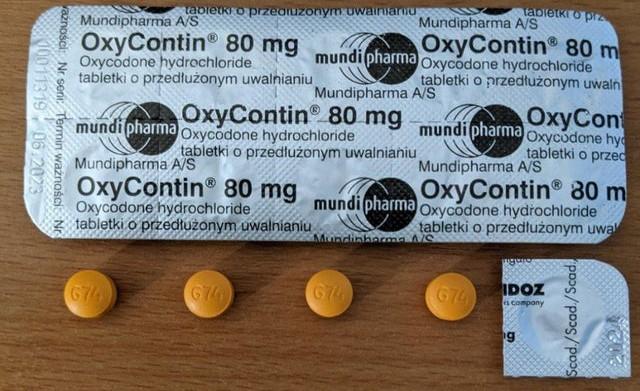
What other drugs could interact with this medication?
There may be an interaction between Mundi Oxycontin 80 and any of the following:
• aclidinium
• alcohol
• amiodarone
• amphetamines (e.g., dextroamphetamine, lisdexamphetamine)
• antihistamines (e.g., chlorpheniramine, diphenhydramine, hydroxyzine)
• antipsychotics (e.g., chlorpromazine, haloperidol, olanzapine, quetiapine, risperidone)
• antiseizure medications (e.g., carbamazepine, clobazam, levetiracetam, phenobarbital, phenytoin, primidone, topiramate, valproic acid, zonisamide)
• aprepitant
• atropine
• azelastine
• “azole” antifungals (e.g., itraconazole, ketoconazole, voriconazole)
• barbiturates (e.g., secobarbital, phenobarbital)
• benzodiazepines (e.g., diazepam, lorazepam)
• benztropine
• beta-blockers (e.g., metoprolol, propranolol)
• bicalutamide
• bosentan
• brimonidine
• buprenorphine
• buspirone
• calcium channel blockers (e.g., amlodipine, diltiazem, nifedipine, verapamil)
• cannabis
• chloral hydrate
• ciprofloxacin
• cimetidine
• clonidine
• cobicistat
• conivaptan
• cyclosporine
• darifenacin
• deferasirox
• desmopressin
• dextromethorphan
• dimenhydrinate
• disopyramide
• diuretics (water pills; e.g., furosemide, hydrochlorothiazide, triamterene)
• domperidone
• dronedarone
• entacapone
• enzalutamide
• ergot alkaloids (e.g., ergotamine, dihydroergotamine)
• flavoxate
• grapefruit juice
• guanfacine
• HIV non-nucleoside reverse transcriptase inhibitors (NNRTIs; e.g., delavirdine, efavirenz, etravirine, nevirapine)
• HIV protease inhibitors (e.g., atazanavir, indinavir, ritonavir, saquinavir)
• ipratropium
• kava kava
• ketotifen
• lithium
• macrolide antibiotics (e.g., clarithromycin, erythromycin)
• metoclopramide
• mifepristone
• mirtazapine
• mitotane
• modafinil
• monoamine oxidase inhibitors (MAOIs; e.g., moclobemide, phenelzine, rasagiline, selegiline, tranylcypromine)
• muscle relaxants (e.g., baclofen, cyclobenzaprine, methocarbamol, orphenadrine)
• other narcotic pain relievers (e.g., codeine, fentanyl, hydromorphone, morphine)
• nefazodone
• norfloxacin
• octreotide
• olopatadine
• oxybutynin
• pegvisomant
• pramipexole
• pregabalin
• rifabutin
• rifampin
• ropinirole
• St. John’s wort
• scopolamine
• selective serotonin reuptake inhibitors (SSRIs; e.g., citalopram, fluoxetine, paroxetine, sertraline)
• serotonin/norepinephrine reuptake inhibitors (SNRIs; e.g., desvenlafaxine, duloxetine, venlafaxine)
• siltuximab
• simeprevir
• thalidomide
• tiotropium
• tocilizumab
• tolterodine
• tramadol
• trazodone
• tricyclic antidepressants (e.g., amitriptyline, desipramine, imipramine, trimipramine)
• “triptan” migraine medications (e.g., eletriptan, sumatriptan)
• tryptophan
• tyrosine kinase inhibitors (e.g., dasatinib, imatinib, nilotinib, sunatinib)
• umeclidinium
• zolpidem
• zopiclone
If you are taking any of these medications, speak with your doctor or pharmacist. Depending on your specific circumstances, your doctor may want you to:
• stop taking one of the medications,
• change one of the medications to another,
• change how you are taking one or both of the medications, or
• leave everything as is.
An interaction between two medications does not always mean that you must stop taking one of them. Speak to your doctor about how any drug interactions are being managed or should be managed.
Medications other than those listed above may interact with this medication. Tell your doctor or prescriber about all prescription, over-the-counter (non-prescription), and herbal medications you are taking. Also, tell them about any supplements you take. Since caffeine, alcohol, nicotine from cigarettes, or street drugs can affect the action of many medications, you should let your prescriber know if you use them.

